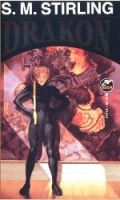 In this alternate history novel, a CIA analyst figures out that by 1969, the space program is having a small but noticeable negative effect on he Soviet economy. Nixon, who never has to resign, decides to massively expand the space program. As the years pass, we follow spies, politicians and astronauts in the years following the first moon landing. While there certainly is a lot of wishful thinking in the plot, with Apollo missions continuing to 23, with private space stations and space shuttles in the seventies, it has a solid foundation. If NASA funding had remained at Apollo levels or increased, we might well have seen all those things.
In this alternate history novel, a CIA analyst figures out that by 1969, the space program is having a small but noticeable negative effect on he Soviet economy. Nixon, who never has to resign, decides to massively expand the space program. As the years pass, we follow spies, politicians and astronauts in the years following the first moon landing. While there certainly is a lot of wishful thinking in the plot, with Apollo missions continuing to 23, with private space stations and space shuttles in the seventies, it has a solid foundation. If NASA funding had remained at Apollo levels or increased, we might well have seen all those things.
This book, for me, represents the best and worst about self publishing. The best because sometimes good books simply are not picked up by publishing houses, and this one deserved to be published. The worst because a commercial publisher would have cleaned up the prose and made this book really shine.
The plot is really good. Well crafted. Exciting. Good pacing. But the text is rife with spelling and grammatical errors. I didn’t count them but I estimate more than one per page on average. Even a mediocre copy editor could have fixed 99% of the problems with the text. Now, if this book had been crappy in general, I wouldn’t have cared. But it is actually a great story. Thus, my frustration stems from the fact that a very good book is dragged down by easily fixable stuff, most of which a word processor would have picked up. That’s just plain sloppy.
Some examples of what I mean: Berkeley is incorrectly spelled “Berkly”. Camaro is spelled “Camero”. Taut is spelled “taunt”. Aide is spelled “Aid”. Applause is spelled “applauds”. Champagne is spelled “champaign”. Asti Spumante is spelled “Asti Spurmanti”. Las Cruces is spelled “Las Cruzus”. Alan Shepard (the astronaut) is spelled “Alan Shepherd”. To add insult to injury, the author does actually spell that name correctly once. Baikonour is spelled in three ways in the book, all incorrect. Grammar errors include phrases like “going to fight for if-no when-you send me to Congress.” Stylistically, there are gems like “They looked at each other in for a moment, sharing the awful truth they had just shared.”
Then we have the technical errors. I will grant that the author is not an aerospace expert but since the book is about the space program one would think he could get the basics right. Finding a pilot to answer a few questions would have greatly improved the test flight passages. Certainly no pilot would ever “jerk the joystick”. There’s no jerking involved. In fact no pilot would EVER call it a “joystick”. It’s just a stick. ARGH!
Finally, we have the politics. Whittington makes Democrats/liberals out to be misguided and short sighted while Republicans lead America to a brighter future. Even though I might not completely agree, I have no problem with the sentiment being expressed. However, it is all so heavy-handed that it weighs down the plot.
In conclusion. I would say that Mr. Whittington has some real talent. What he needs is a real editor to review the text before publication. Without the errors and with a few style adjustments, this one could have scored four or more Rosbochs.

 This novelette is about an immortal mankind that grows out of the Roman Empire. Very intriguing. The story is centered around a murder mystery, and Hamilton skillfully intertwines the case with a slow revelation about this society so unlike our own. The main theme is the meaning of life, and the value of it. Well worth a read.
This novelette is about an immortal mankind that grows out of the Roman Empire. Very intriguing. The story is centered around a murder mystery, and Hamilton skillfully intertwines the case with a slow revelation about this society so unlike our own. The main theme is the meaning of life, and the value of it. Well worth a read.
































